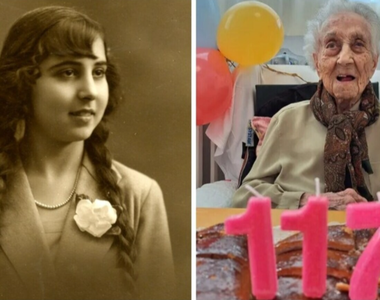
"A good life does not require sincere feelings for the sake of authenticity, but it requires rebellion against negative impulses and doing the right thing, even when we do not want to," writes Arthur C. Brooks, author of "Gross National Happines," a column in The New York Times.
In the 2015 year article, he explains that "acting like you're grateful makes you really grateful," and uses scientific facts to defend the argument.
A 2003 study compared the well-being of participants who listed each week for what they were grateful for and the well-being of those who listed each week for things that irritated or excused them. The researchers noted that participants who focused on gratitude displayed higher well-being and concluded that "conscious focus on blessings in life has emotional and interpersonal benefits."
The participants did not enter the study more or less grateful than the others and did not change anything in their lives. They simply changed their perspective on gratitude, and that made them happy.
How does gratitude have this effect? First, by stimulating two important brain regions: the hypothalamus, which regulates stress, and the ventral ventral area, which play an important role in the reward system of the brain that produces a sense of pleasure.
A 1993 study found another way to be happier even when we are not happy. Researchers found that smiling, both conscious and unconscious, has the same effect on brain activity. You can convince your brain and body that you are happy even when you are not simply smiling forcefully. "When you behave happy, regardless of feelings, the brain lies and processes positive emotions," Brooks explains. ?In other words, pretend you know, until you really know.
In his rubric, Brooks suggests that we follow three strategies to reap the positive effects of gratitude.
First, practice ?inner gratitude.? Keep a daily or weekly list of things that make you grateful. For example, I might write: I am grateful that I have a job that I enjoy and that through this work I can help people in need.
Second, practice external gratitude. Send thank you letters and express your gratitude. For example, you might send a thank you message to a friend who was close to you in a difficult moment.
And third, be grateful for the little things. In other words, be thankful for everyday things that you ignore such as fresh fruit or a warm home.
Are you worried that sending a thank you letter will make you look bad in the eyes of friends? Or will it not have any impact on their lives?
Science says you are wrong.
A study published in Psychological Science in June 2018 reveals that people underestimate the importance of a thank you letter to others.
The researchers asked a group of 100 participants to write thank-you letters to the people they wanted to thank, as a friend or a teacher. Dr. Amit Kumar, researcher, noticed that the letters took more than five minutes to participants.
Participants were then asked to rate how surprised, happy, and embarrassed the letter recipient would feel when reading it. And finally, the recipients of the letters were asked how they felt from the thank you letters.
It seems that the writers overestimated the embarrassment that the writers would feel and underestimated the positive effects. Journalist Heather Murphy, of The New York Times, writes: "After receiving thank-you letters and completing the questionnaires, the writers said they felt very good and happiness was 4/5. The writers assumed a 3/5 level of happiness.
If gratitude even when nothing happens to be grateful does you well and has a positive effect on your life and those around you, why not practice it daily?
Do as Psychology's father Martin Seligman recommends in the book Authentic Happiness and write a thank you letter daily. spend five minutes in the morning or evening to express gratitude to a loved one. Science says you will feel embarrassed, but you should do it anyway.
By Andrea Brandt, Ph.D for Psychology Today





